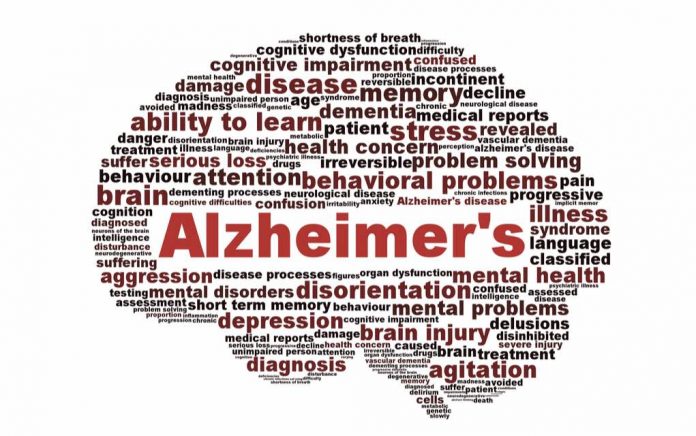
If you want to learn how to help prevent the disease that people fear the most, then read on. The disease is Alzheimer’s, but you probably don’t know the one thing some experts say you need to do, at any age, to protect yourself.
Once you hear that one thing, you may not believe it. Yet according to Dean and Ayesha Sherzai, directors of the Alzheimer’s Prevention Program at Loma Linda University Medical Center and a duo dedicated to optimizing brain function, this one thing is something each of us can begin to work on right now.
Read about take this vitamin to reduce the risk of dementia and Alzheimer’s
The single-action you can do to help prevent Alzheimer’s disease is to identify and pursue your purpose in life. Sounds easy, right? However, it’s not enough to simply write down your sense of purpose in your journal or on a sticky note to attach to your mirror. The brain-saving part of this task is to actually set personal goals and then take the necessary steps, even if they are small ones, steadily and consistently over time to achieve them.
What is your purpose in life?
That’s a question that only you can answer. To help you arrive at an answer, you will need to look deep into your heart and soul and take some steps to identify what your life goals are, no matter your age. (Click here for some suggestions.) Whether you are sixteen, sixty, or eighty-six, goals are important.
Do you want to get a college degree, learn a new instrument so you can join a band, work to alleviate hunger in your community, be a master gardener, teach old dogs new tricks, compose a book of poetry, or learn how to paint watercolor landscapes? Maybe you have more than one goal! Whatever purpose you choose, the path you travel to reach your goal can be saving your brain.
Elizabeth Lesser, co-founder of the Omega Institute (a center that educates people on creativity, spirituality, and wellness), “The body needs food, water, and rest. The soul needs love, courage, and purpose.” When you have a purpose, you help protect your brain.
This action-based approach to preventing Alzheimer’s disease does much more than, say, working on crossword puzzles or reading books. Although these are great brain-enhancing activities as well, the two doctors, who also have authored The Alzheimer’s Solution, say that having and acting on a sense of purpose:
- Strengthens the connections between our brain cells (neurons)
- Prompts the brain to be proactive and work harder
- Raises the level of good stress, which can enhance health and reduce inflammation. Chronic inflammation has been shown to be involved with Alzheimer’s disease as well as other serious health issues, including heart disease and stroke
- Decreases levels of bad stress, which is associated with high levels of stress hormones (e.g., cortisol and adrenalin)
Since stress plays such a significant role in your sense of purpose and helping prevent Alzheimer’s disease, let’s look at these two opposing states.
Bad versus good stress
Often we think of stress as being only a bad thing, but some stress is actually very beneficial. First, however, let’s look at bad stress. When we experience bad stress, the body responds by causing the brain to release stress hormones that tamper with our ability to think clearly and make decisions. It also increases inflammation throughout the body and overburdens the thyroid gland, which can have a negative impact on metabolism and promote weight gain.
Read about green tea may prevent Alzheimer’s
Good stress, on the other hand, is linked to our sense of purpose. When you have a goal in mind; say, you want to learn sign language so you can communicate with a deaf friend or family member or you want to promote recycling in your community by giving public talks, then the stress is related to a positive end.
Drs. Sherzai note that this type of positive stress is more under our control and that it can be the best technique to protect long-term brain health. Positive stress can enhance brain health by reducing inflammation and producing new brain cell connections.
According to Ayesha Sherzai, MD, “Nothing is more protective to the brain than positive stress, and nothing is more damaging to our lives than negative stress.” Although it’s often impossible to avoid negative stress, we can always take steps to reduce it and work to have more positive stress, which is associated with goal-reaching activities, and thus better brain health.
What is your life’s purpose? Do you need help identifying it? Check out these sites at the University of California, Berkeley, and VeryWell Mind.
Read this next: 9 Foods That Can Help Prevent Alzheimer’s Disease
Sources
11/14: Alzheimer’s most feared disease. Marist Poll 2012 Nov 15
Loewe E. This is the most important thing you can do to prevent Alzheimer’s (no matter your age). MindBodyGreen
Sherzai A. This neurologist doesn’t want you to live a stress-free life—here’s why. MindBodyGreen
Weingus L. Exactly how to find your purpose according to a happiness expert. MindBodyGreen










